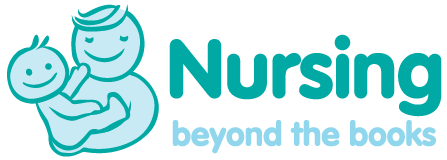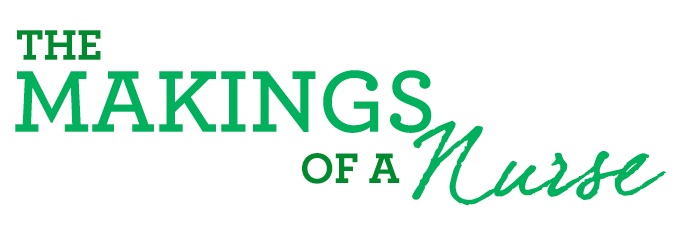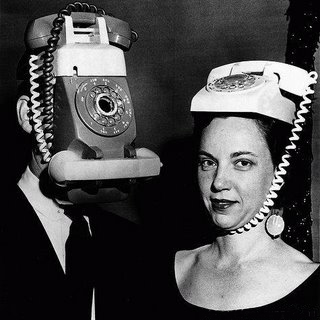Nursing vs. Midwife for Expectant Mothers
 Today, pregnant women have lots of choices when it comes to prenatal and post-natal care of themselves as well as their babies. A woman’s choice of care depends upon many factors including her beliefs, her health, and the health of her baby. For instance, some women opt to have an obstetrician/nurse team care for her and her baby. Other women choose to hire a midwife to help them throughout the pregnancy, the birth, and afterward. The following looks at the roles of an obstetrician/nurse team and a midwife. Also, consider the benefits of utilizing these professionals.
Today, pregnant women have lots of choices when it comes to prenatal and post-natal care of themselves as well as their babies. A woman’s choice of care depends upon many factors including her beliefs, her health, and the health of her baby. For instance, some women opt to have an obstetrician/nurse team care for her and her baby. Other women choose to hire a midwife to help them throughout the pregnancy, the birth, and afterward. The following looks at the roles of an obstetrician/nurse team and a midwife. Also, consider the benefits of utilizing these professionals.
The Role of a Nurse
A pregnant woman who looks to a nurse for care during her pregnancy is not just getting the help of one person. A nurse works with an obstetrician to help a woman through her pregnancy. A nurse can answer questions about prenatal vitamins and the proper diet for a pregnant woman. If a pregnant woman leaves a voicemail message at her obstetrician’s office, it’s likely that a nurse will be the one to call back with an answer. During a birth, a nurse helps the obstetrician and makes sure the mother is as comfortable as possible. After a baby is born, there are registered nurses who conduct home visits to see how the baby and the mother are getting along. They usually weigh the baby to see if he or she has gained weight. Also, a nurse asks if the mother is having any pain or other unusual symptoms. The nurse acts as a link between the obstetrician and the new mother. Furthermore, he or she is also qualified to answer any questions about how to properly care for the baby. Some mothers take it upon themselves to hire registered nurses to help care for the baby soon after they arrive home. For instance, if a mother is recovering from Caesarean section surgery, she may need some help feeding and bathing the newborn. A nurse is qualified to help a mother through all of the stages of her pregnancy and beyond.
The Benefits of Receiving Care from a Nurse during Pregnancy and Childbirth
A nurse who is working with an obstetrician to care for a pregnant woman will have a Bachelor’s in nursing and may even have a Master’s degree in the field. In short, a registered nurse often has a great deal more education and training than a midwife. Also, an obstetrician and nurse team work in a hospital environment. Consequently, if any problems arise during the birth, this team has access to medical equipment that can help both baby and the mother. For instance, if an emergency Caesarean is necessary, a doctor and nurse in a hospital environment will be able to arrange for that surgery in a matter of minutes. Many pregnant women feel more at ease with the delivery if they are in a hospital with the proper equipment and staff to handle any complications.
The Role of a Midwife
Midwives have been helping women have their babies for thousands of years. In the early days, a midwife was often related to the pregnant woman. Sometimes a woman neighbor with children acted as midwife to a mother-to-be during childbirth. Her experience was an invaluable part of the birthing process. Today, midwives must complete a program of education before receiving certification. They also work with an experienced midwife for a time before they are able to help a pregnant woman on their own. Midwives have the qualifications to help during all stages of pregnancy. They do everything from advise a woman on her prenatal health to teaching a new mother how to care for her baby. Along with caring for a pregnant woman, a midwife provides encouragement and emotional support. Midwives can assist a pregnant woman as she gives birth at home or in a birthing center. Midwives help women with pregnancies that have no complications.
The Benefits of Receiving Care from a Midwife during Pregnancy and Childbirth
One benefit of receiving care from a midwife is that they can help pregnant women give birth at home. Many women want to give birth at home because they consider it an ideal, peaceful atmosphere. This can contribute to the relaxed state of mind of the woman about to give birth. Another benefit of receiving care from a midwife is that she helps a mother-to-be create the environment for the birth. For instance, some midwives help women give birth in water. Also, a midwife is there for one pregnant woman at a time. Alternatively, a busy obstetrician/ nurse team may be dealing with pregnant patients in the other labor rooms of a hospital. Some pregnant women who favor a midwife over an obstetrician/nurse team think of the midwife as a partner in the entire process.


 Our series begins with a discussion with a practicing RN who uses the online name “Shrtstormtrooper” to blog freely about nursing at
Our series begins with a discussion with a practicing RN who uses the online name “Shrtstormtrooper” to blog freely about nursing at  The series continues by reaching-out to a nurse specializing in rehabilitative care who uses the online name “rehabRN” to blog freely about her nursing and experiences at
The series continues by reaching-out to a nurse specializing in rehabilitative care who uses the online name “rehabRN” to blog freely about her nursing and experiences at  The third part of this series connects us to Keith Carlson, a well-known nurse blogger who has been in the field for 15 years. Focusing on delivery of specialized care to those living with AIDS, diabetes, and other chronic illnesses, Keith has effectively worked with hundreds of patients across the socioeconomic spectrum. He has also taught nursing. Keith owns an award-winning nursing blog at
The third part of this series connects us to Keith Carlson, a well-known nurse blogger who has been in the field for 15 years. Focusing on delivery of specialized care to those living with AIDS, diabetes, and other chronic illnesses, Keith has effectively worked with hundreds of patients across the socioeconomic spectrum. He has also taught nursing. Keith owns an award-winning nursing blog at  The fourth part of our series continues by connecting with Lovlei McKinnie, a nursing student who is currently in her senior year. Lovlei has a perspective that will be very close to many nursing students, as seen on her blog
The fourth part of our series continues by connecting with Lovlei McKinnie, a nursing student who is currently in her senior year. Lovlei has a perspective that will be very close to many nursing students, as seen on her blog  The fifth entry to our series connects us to Gina Rybolt, a practicing RN with her BSN and over 14 years of nursing experiences to share. The insights Gina has offered fills her popular blog
The fifth entry to our series connects us to Gina Rybolt, a practicing RN with her BSN and over 14 years of nursing experiences to share. The insights Gina has offered fills her popular blog  The series continues by reaching-out to Nurse Teeny, a well-known blogger who has been sharing her own journey on
The series continues by reaching-out to Nurse Teeny, a well-known blogger who has been sharing her own journey on  The seventh part of our series reaches out to a well-known nursing blogger named Kim McAllister who is an RN, BSN, and CEN also currently working on her Master’s. As a practicing nurse for over three decades Kim has seen a lot, and she is willing to talk openly about her experiences. Her blog
The seventh part of our series reaches out to a well-known nursing blogger named Kim McAllister who is an RN, BSN, and CEN also currently working on her Master’s. As a practicing nurse for over three decades Kim has seen a lot, and she is willing to talk openly about her experiences. Her blog  The series continues with an in-depth interview with Terri Polick, better known to the nursing community as blogger MotherJonesRN of
The series continues with an in-depth interview with Terri Polick, better known to the nursing community as blogger MotherJonesRN of  The series continues by reaching-out to Dr. Lorry Schoenly PhD, RN, CCHP who has been a nurse for 25 years and is currently specializing in correctional healthcare. She is also a clinical education specialist and blogs regularly at
The series continues by reaching-out to Dr. Lorry Schoenly PhD, RN, CCHP who has been a nurse for 25 years and is currently specializing in correctional healthcare. She is also a clinical education specialist and blogs regularly at  I recently had to take my child to get a couple of shots at the doctors office. Oh did I dread this day. No one likes needles, especially kids! Think about it, you are going to a sterile doctors office filled with screaming kids to get a needle stuck in you on purpose, that is no one’s idea of fun! So here are a few tips to help you handle the shot situation when it’s time to take the kids in for a doc visit:
I recently had to take my child to get a couple of shots at the doctors office. Oh did I dread this day. No one likes needles, especially kids! Think about it, you are going to a sterile doctors office filled with screaming kids to get a needle stuck in you on purpose, that is no one’s idea of fun! So here are a few tips to help you handle the shot situation when it’s time to take the kids in for a doc visit: A friend of mine recently gave birth at a “Birthing Center” using only a jacuzzi and a midwife. Being equally pregnant at the time and terrified of hospitals, I considered doing the same. So after extensively researching midwifery and all that it entails, I learned that many people are misinformed about midwives, their training and their approach to giving birth.
A friend of mine recently gave birth at a “Birthing Center” using only a jacuzzi and a midwife. Being equally pregnant at the time and terrified of hospitals, I considered doing the same. So after extensively researching midwifery and all that it entails, I learned that many people are misinformed about midwives, their training and their approach to giving birth.

